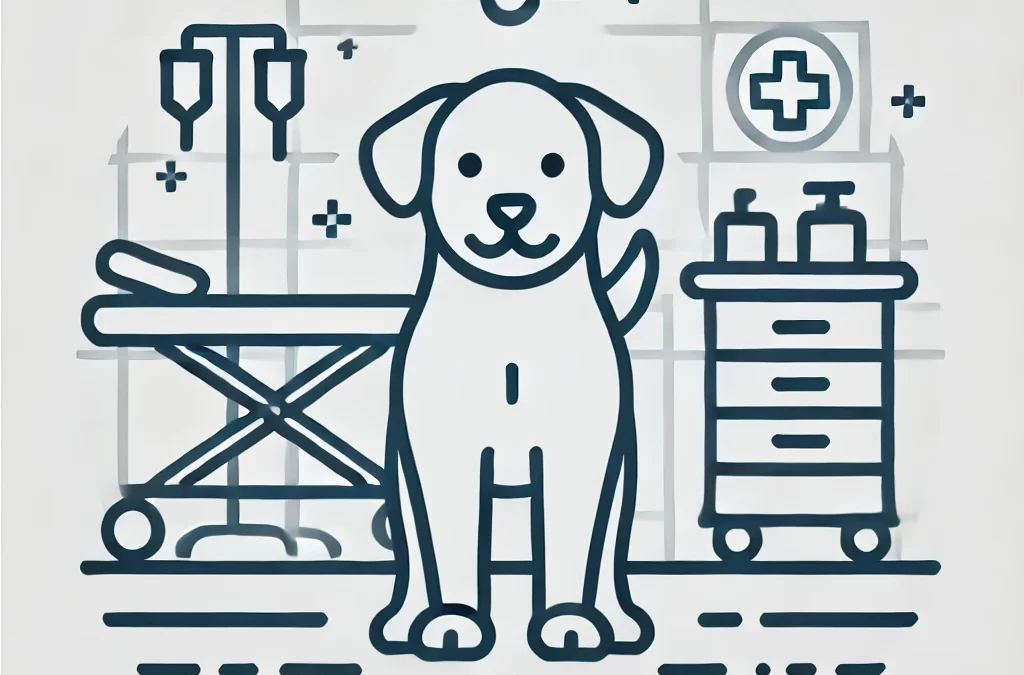When we hear the word “tumor,” our minds often leap to the worst-case scenario: cancer. However, not all tumors are malignant. In fact, benign intestinal tumors in dogs are far less sinister and can often be managed effectively with the right approach. This article dives into the nuances of these benign growths, helping you understand their causes, symptoms, and management strategies.
What Are Benign Intestinal Tumors?
Benign intestinal tumors are non-cancerous growths that develop in the gastrointestinal (GI) tract of dogs. While they don’t invade surrounding tissues or spread to other parts of the body, their presence can still lead to discomfort or digestive issues if they grow large enough to obstruct the intestines or interfere with normal function.
Common Types of Benign Intestinal Tumors in Dogs:
- Adenomas: Develop from glandular cells lining the intestines.
- Leiomyomas: Originate from smooth muscle cells in the intestinal wall.
- Polyps: Small growths that protrude from the lining of the intestines.
Causes: Why Do These Tumors Develop?
While the exact cause of benign intestinal tumors in dogs is unknown, several factors may contribute:
- Genetics: Some breeds, like German Shepherds and Collies, may have a predisposition.
- Chronic Inflammation: Long-term GI inflammation can increase the risk of abnormal cell growth.
- Dietary Factors: Poor-quality diets lacking fiber may play a role in polyp development.
Symptoms: What to Watch For
Benign tumors often grow slowly, making symptoms subtle at first. Over time, as the tumor enlarges, the following signs may appear:
- Chronic Vomiting or Diarrhea: Due to irritation or partial blockage.
- Weight Loss: If the tumor affects nutrient absorption.
- Blood in Stool: Bright red or dark, depending on the tumor’s location.
- Abdominal Pain: If the tumor causes bloating or obstruction.
- Change in Appetite: Fluctuations between hunger and refusal to eat.
Red Flag: Any persistent GI symptom warrants a visit to your veterinarian for a thorough evaluation.
Diagnosis: Pinpointing the Problem
Diagnosing benign intestinal tumors involves a combination of techniques:
- Physical Exam: Palpation of the abdomen for masses.
- Imaging: X-rays or ultrasounds to visualize the intestinal tract.
- Endoscopy: A camera-assisted examination to view and potentially biopsy the growth.
- Biopsy: Definitive diagnosis comes from analyzing a tissue sample to determine if the tumor is benign.
Treatment: Options for Managing Benign Tumors
While benign tumors aren’t life-threatening, they often require treatment to alleviate symptoms or prevent complications.
1. Surgical Removal
- When Is Surgery Needed? If the tumor causes obstruction or severe symptoms.
- Outcome: Surgery is typically curative for benign growths, and dogs recover well post-operation.
2. Endoscopic Polypectomy
- What Is It? A less invasive method to remove polyps or small tumors via an endoscope.
- Advantages: Shorter recovery time and minimal discomfort.
3. Dietary Adjustments
- Why It Helps: A high-fiber diet may reduce inflammation and support gut healing after treatment.
- Foods to Include: Pumpkin, cooked sweet potatoes, and vet-recommended kibble.
4. Monitoring
- For Small Tumors: Regular check-ups to monitor growth without immediate intervention.
Prognosis: What to Expect
Benign intestinal tumors generally have an excellent prognosis when treated appropriately. Regular veterinary visits and follow-ups are crucial to ensure the tumor doesn’t recur or cause further issues.
Prevention: Can You Lower the Risk?
While it’s impossible to guarantee prevention, the following steps may reduce your dog’s risk of developing benign intestinal tumors:
- Balanced Diet: Include high-quality proteins, healthy fats, and sufficient fiber.
- Regular Vet Visits: Routine check-ups can catch potential issues early.
- Watch for Symptoms: Early detection often leads to simpler, less invasive treatments.
A Unique Perspective: The Gut and Overall Health
Interestingly, your dog’s gut health is closely tied to their overall well-being. The presence of a benign tumor might signal underlying imbalances, like inflammation or poor diet, that deserve attention. Treating the tumor is just one part of the journey—addressing the root causes ensures your dog remains healthy and vibrant.
Conclusion: Turning Challenges into Opportunities
Benign intestinal tumors in dogs, while concerning, are manageable and often curable. They offer a reminder to prioritize gut health, provide nutritious meals, and maintain a strong partnership with your veterinarian. With care and vigilance, your furry companion can continue to enjoy a happy, comfortable life.















